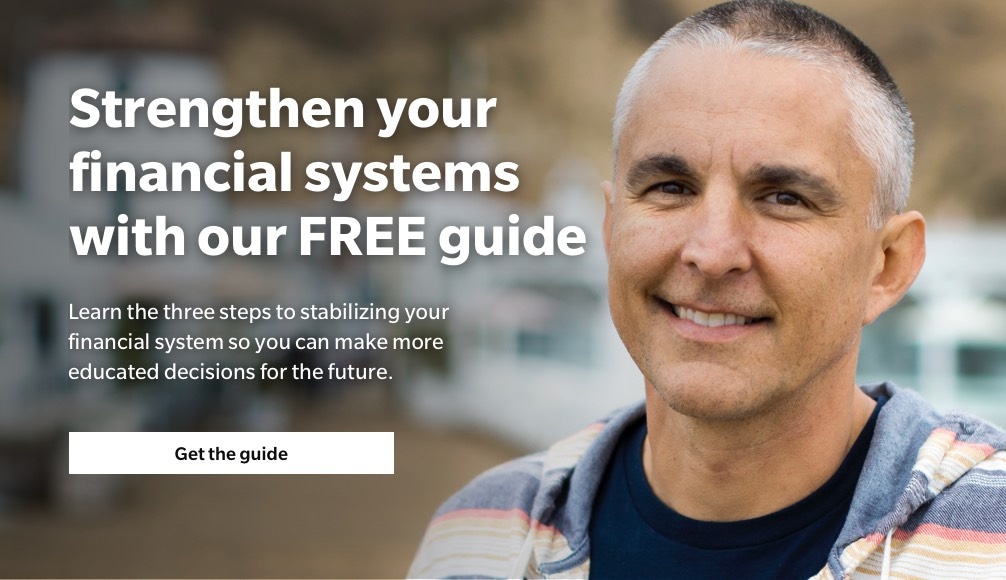As an entrepreneur, you care more about the financial health of your business than anyone else. You have everything invested in it, professionally and personally. So you’re the primary person responsible for managing your business finance.
This can be one of the hardest truths for business owners to accept. Money is a lightning rod for emotional reactivity, and so, many people don’t want to get close to it for the emotional impact it brings. But the sooner you embrace the financial management of your company, the sooner you’ll be able to make smarter, more confident decisions that grow your business and give you the return you want. Here are three strategies to help you get more comfortable with the numbers so you can get more control over managing and growing your money.
1. Know your money personality
Everyone relates differently to money. And whether or not you’re aware of it, how you relate personally influences how you deal with finance in your business. If you don’t have a good relationship with money, you could have your head in the sand and miss some big issues. Or you could be so worried that money is the only thing you ever think about, and it might actually blind you to the ways you could be using money as a tool.
If you want to impact the financial patterns in your business, identifying your values and money personality is a good place to start.
In general, there are three basic financial styles:
- The Monk is detached and wants little or nothing to do with money.
- The Spender can’t keep money in their pocket.
- The Hoarder doesn’t spend enough.
Which one sounds most like you? Whether you firmly have one attitude about money or a combination, one style is dominant. And whichever that is, it defines your relationship to money in general—and will spill into your business. Ask yourself:
How does your approach to money affect your business?
What attitudes or beliefs around money would you like to change within yourself?
What financial attitudes or behaviors have you noticed in your employees that are a result of your own basic style and attitude?
These questions aren’t easy. They can take some personal reflection that maybe you’ve never done. But if you can honestly answer them, you can start to see the reality of your financial condition—what’s true versus the stories that you’re creating.
2. Don't abdicate your finances
Many small business owners abdicate financial management to a bookkeeper or accountant. It’s such a common practice that it’s almost seen as “the way of business”. But there’s a difference between abdicating and delegating, and you always want to know what’s happening with your money, even if someone else is managing it.
You don’t need to be an expert, but you do need to understand and oversee your basic finances for the security it brings your company and the control you’ll gain over business decisions. If you don’t, the results can be crippling.
Imagine you and your partner run a dental practice. Neither of you knows anything about finance, so you give the responsibility of managing the books to your administrative assistant because that’s your only member of staff who’s available to do it.
Your business grows, but you seem to be losing money. After all your hard work, it’s confusing how this could be happening. Worried that you may have to close your business, you look deeper and see that you’re actually turning a profit. The money is so mismanaged that it didn’t feel that way. It turns out that your assistant also knew nothing about finance and in her years as the “bookkeeper,” never even used a simple tracking program like Excel.
Distancing yourself your finances can create false beliefs like this that can potentially cost you your business.
3. Design a routine of checking in on your finances
One of the simplest ways to adapt to new practice is by creating a low-stakes routine to start. Here’s a simple exercise to try that you could call a money date or your business development hour.
Just pick a time on the calendar, like Friday at 2pm, and every week use that hour to look at the same few indicators on your financial statements.
You can choose your own indicators to focus on or start with the three key figures that keep the doors open:
- Cash balance: how much money you have in the bank
- Accounts receivable: how much money is due to come in from existing invoices
- Accounts payable: how much money is going out to cover bills and expenses
The beauty of this exercise is its simplicity. You’re not taking these numbers and crunching or analyzing them—you’re just getting familiar with them. And like anything new, once you do it once, it gets easier and easier. Routine leads to familiarity leads to comfort.
Doing this in small, regular doses can build your confidence and normalize your relationship with money, not with the goal of doing anything differently or changing anything, simply with the goal of creating a better and more productive relationship than you have right now.
Once you’re in the habit, it’ll naturally start prompting you to ask questions. Things like:
I wonder if I could change my payroll date so that it better matches my cash flow? Then I wouldn’t have to go into my line of credit to cover my payroll.
Why do I feel comfortable with the money for half the month and under strain for the other half?
Asking questions like this can hold up a mirror up to the decisions you’re making or not making about your business. It will help to focus your mind on what you want to keep doing and what you want to do differently.
Getting close to finance is one of the most challenging parts of running your own business. If you want more help understanding how to become the financial leader in your company, we’d love to connect with you for a free coaching session.





Comments